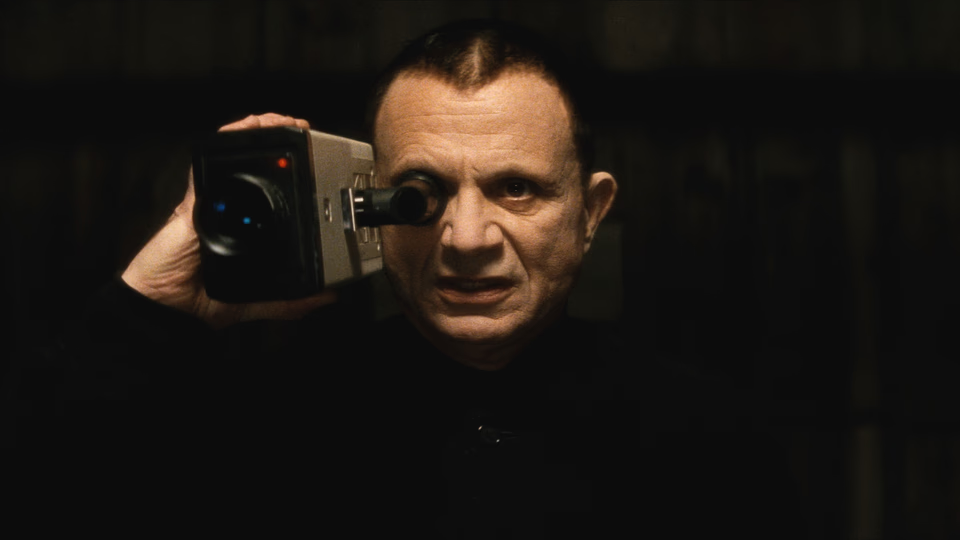Lost Highway

David Lynch’s films fall on a spectrum. On one side, you have the aptly titled The Straight Story—a straightforward linear narrative. On the other, you have the near impenetrable Inland Empire, devoid of a clear narrative or linear timeline. I place Lost Highway square in the middle, which might be why it’s my favorite Lynch film.
It opens with Fred, a jazz saxophone player, played by Bill Pullman, and his wife Renee played by Patricia Arquette, a couple on edge after receiving mysterious video tapes of their home in the Los Angeles hills.
Cinematographer Peter Deming films the shadowy interiors with low contrast, resulting in a hazy grain that gives these scenes an ethereal sheen. Fred and Renee speak in hushed whispers and disappear into darkness while the soundtrack emits dissonant whirrs and drones, bringing a palpable sense of dread to every scene.
This atmosphere culminates in a party sequence where Fred spies a mysterious man played by Robert Blake, who approaches Fred and offers a knowing grin. Contrasting the grin, Blake’s eyebrowless pale face, red lips, black hair, and window’s peak exude a sinister, surreal menace as he asks, “We’ve met before, haven’t we?”
Soon after, the film abruptly shifts into mystery noir, bringing in a somewhat new cast. We meet a young mechanic named Pete, played by Balthazar Getty, favored by a gangster named Mr. Eddy, played by Robert Loggia. Like Blake’s mystery man, Loggia’s Mr. Eddy exudes a sinister menace, but his is more traditional—a coiled rage, though their early scenes in the garage where Pete works prove some of the film’s brightest, the sunshine a stark contrast to the previous dark interiors.
Mr. Eddy’s moll Alice, also played by Arquette, takes an interest in Pete, leading to a plot reminiscent of They Drive By Night’s second half mixed with Lynch’s earlier film, Blue Velvet. Alice plays the femme fatale Pete can’t resist against his better judgment, leading to unfortunate consequences.
The finale sees Blake’s mystery man reappear as the two stories join in a Möbius strip, as the mystery becomes a horror and the horror becomes a mystery, leaving it to the viewer to interpret.
This, of course, makes reviewing the film tricky, as Lynch intends no universal meaning. Though the film offers many scenes involving being filmed and invites questions around Arquette’s dual roles, any thematic or symbolic interpretation is—and should be—specific to the viewer. While some will no doubt be put off by this lack of direct explanation, Lynch and co-writer Barry Gifford give us enough to construct an explanation for ourselves—a refreshing change that proves both rewarding and challenging. Indeed, Lost Highway has almost limitless replay value, as new details emerge with every journey.